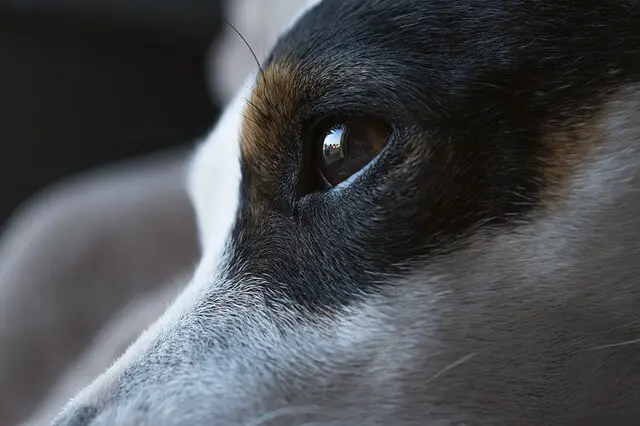IBD in Dogs: Symptoms, Causes & Treatment
16.02.2022.
Humans and dogs share many health issues, and one of them that can affect our dogs and us is - inflammatory bowel disease or IBD. This is a painful and unpleasant condition that can be difficult to deal with. If you’re worried about your dog’s health and think they might have developed inflammatory bowel disease, here are the most important things you should know.
What is inflammatory bowel disease in dogs?
Inflammatory bowel disease is pretty self-explanatory. If your dog develops this condition, their intestinal tract will chronically be inflamed. It has “disease” in its name, but it is more of a syndrome than a disease. IBD in dogs can affect the dog’s stomach, intestines, or both. Clinical signs might differ depending on the part of the gastrointestinal tract IBD will affect.
What causes IBD in dogs?
The first major issue with IBD in dogs is that it is poorly understood. Researchers and vets agree there are several possible causes of IBD in dogs. They all seem to trigger an allergy-like response in the dog’s GI tract. Most cases of IBD don’t have an exact cause. More precisely, vets are not sure what exactly triggered it. However, most agree it is caused by;
- Bacterial infections (E.coli, Salmonella)
- Parasitic infections (Giardia)
- GI tract’s reaction to a specific protein in the dog’s diet

Again, most cases don’t have an exact cause.
How will IBD affect my dog?
Most dog owners want to know precisely what IBD does to their dogs. We already mentioned it will affect the stomach and the bowels. If the dog’s stomach gets inflamed, the stomach lining will become very sensitive. The dog will most likely experience chronic vomiting. If the situation lasts long, the dog might lose its appetite and weight. However, some dogs will develop an increased appetite because IBD will prevent proper food and nutrient absorption.
If the dog’s intestines get inflamed, they will most likely experience chronic diarrhea. If both the stomach and intestines are involved, the dog might develop both problems that will last a long time.
How can I know if my dog has IBD?
Most dog owners will notice something’s wrong with their dogs. It is pretty hard not to notice constant vomiting or diarrhea. IBD is a messy problem, and while dog owners might not know exactly what’s wrong with their dogs, they will surely notice problems. That’s when dog owners call their vets and schedule appointments. You can learn the most common IBD symptoms in dogs and make an educated guess.

IBD symptoms in dogs
Like all diseases or syndromes, IBD comes with specific clinical signs or symptoms. We already mentioned that these symptoms can vary because the condition can affect different parts of the dog’s GI tract. Symptoms will be different for IBD that affects the stomach, intestines, or both. The most common IBD symptoms in dogs are;
- Chronic vomiting
- Chronic diarrhea
- Weight loss
How do vets diagnose it?
Your vet might not be entirely sure what’s wrong with your dog, so they will start looking for potential causes. They will try to reach the correct diagnosis through fecal examinations and thorough blood testing. When the results come back inconclusive, they will order X-rays or ultrasound of the intestines and stomach.
The vet might not know what type of IBD your dog has and the exact type is best diagnosed with tissue biopsies. Before they take a sample, they will find a suspected location the IBD affected. After that, they will recommend an endoscopic procedure or a full abdominal exploratory surgery. Surgery will be needed if the upper large intestine is involved because the endoscope can’t reach that part. When the tissue sample is taken, it will be sent to a specialist for an examination. Other tests the vet might request are;
- Vitamin B12 measurement
- Fecal analysis
- Folate measurements

IBD treatment
The second big issue with the IBD is that not all dogs react the same to exact treatment options. Sometimes, vets will have to try different things to find out the best treatment. Here are some of the things they might try;
Diet change
Since IBD can be triggered by the dog’s reaction to specific proteins in their diet, your vet might advise you to change the dog’s diet. Try picking dog food with different main protein sources and avoid by-products, artificial ingredients, and colorings. In some cases, hypoallergenic dog foods are the correct answer.
Deworming
Parasites can trigger IBD, so some vets recommend broad-spectrum dewormers. If the dog’s fecal analysis confirms parasites, this should solve the issue.
B12 vitamin supplements
B12 vitamins are not actually a cure. However, vets will want to ensure the dog receives this crucial vitamin because IBD can prevent them from absorbing it.
Medications
If the IBD is triggered by bacteria, antibiotics might be the solution. For example, many cases of IBD can be resolved with Flagyl. This antibiotic will get rid of harmful bacteria, and it has anti-inflammatory properties. That means it can ease the inflammation and help restore the balance in the dog’s intestines. It is advised to give the dog probiotic supplements.
The second medication dogs might have to take is prednisone. It is a corticosteroid that will help control the inflammation and clinical signs of IBD in dogs. However, corticosteroids have to be used carefully because they can interfere with test results. The vet must take biopsy samples before corticosteroids are administered.
World Dog Finder team







Share